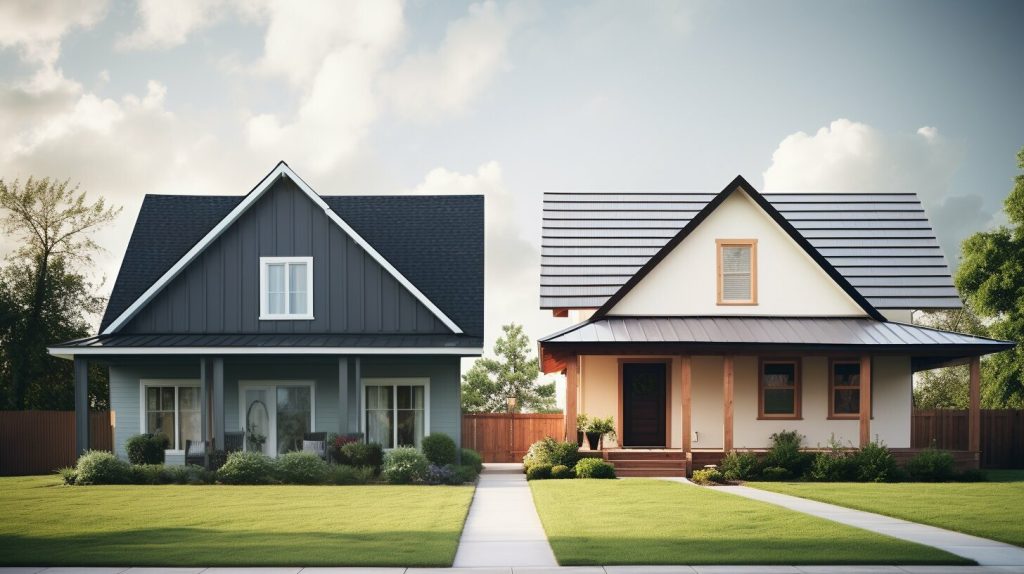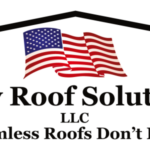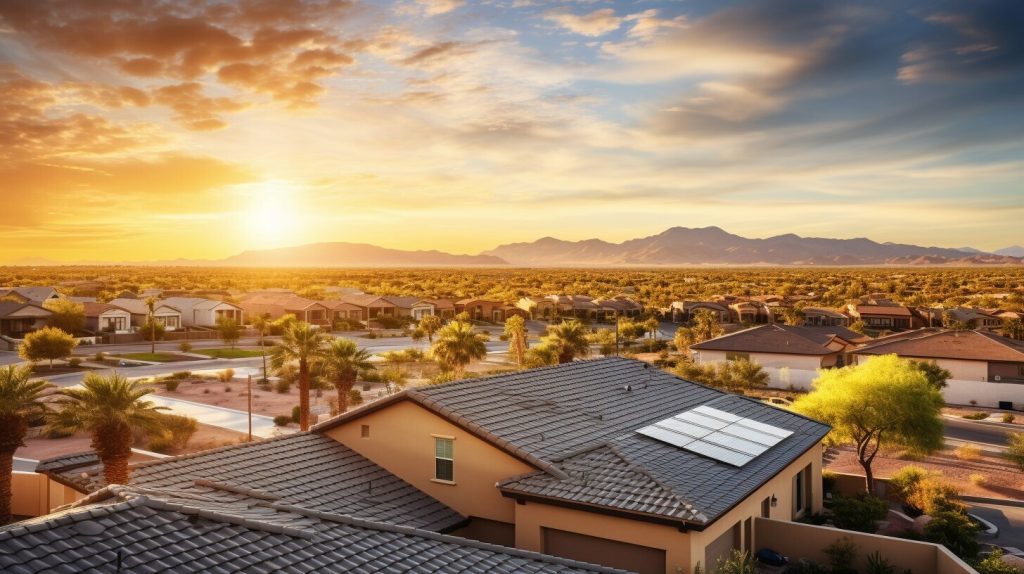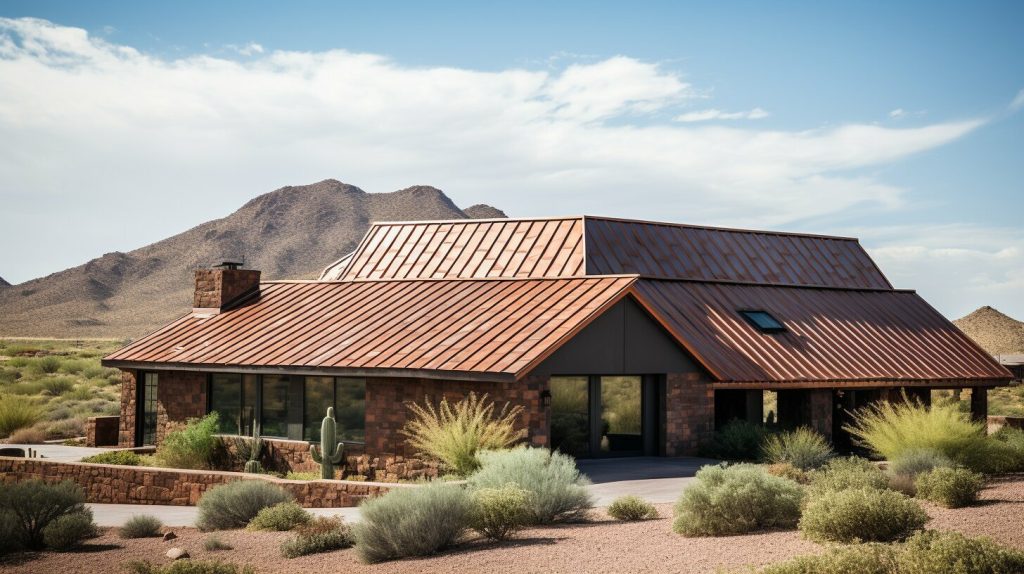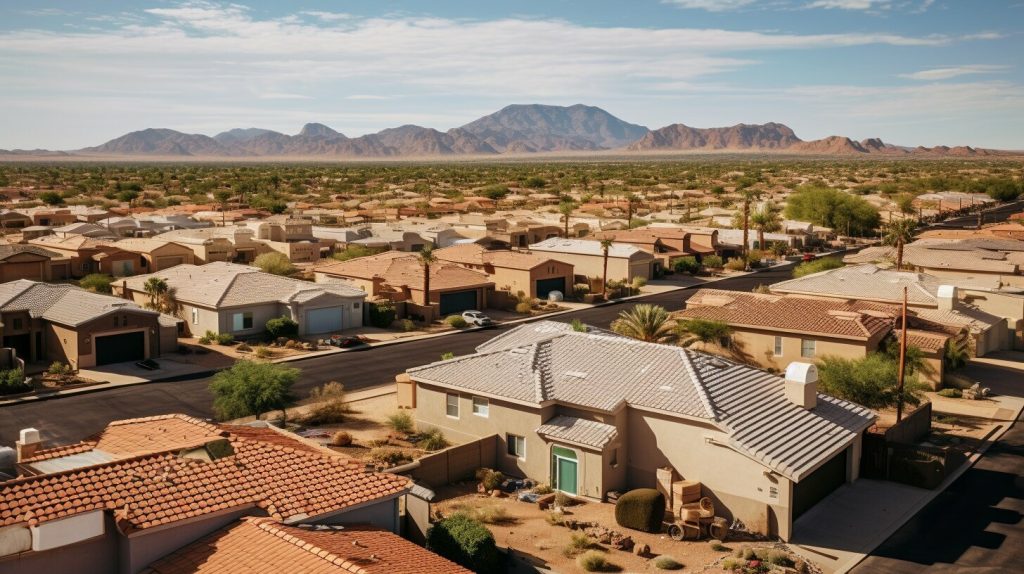As business owners, your commercial property’s roof is a crucial investment that requires careful consideration. One of the most common debates in the roofing industry is between metal roofs and shingles. Both options have their advantages and drawbacks, and it’s essential to understand the differences between them when making your roofing choice.
In this article, we will explore the pros and cons of both metal roofs and shingles. We will also discuss the essential factors that you need to consider when choosing between these two popular roofing options. By the end of this article, you will have a better understanding of which roofing choice is the most suitable for your business.
Key Takeaways
- Choosing between metal roofs and shingles is a crucial decision for business owners.
- Both options have their advantages and drawbacks.
- Understanding the essential factors is crucial for making the best roofing choice.
- Metal roofs offer durability, longevity, energy efficiency, and low maintenance requirements.
- Shingles are versatile in design and color, easy to install, and affordable.
Pros of Metal Roofs
When it comes to commercial roofing, metal roofs offer a plethora of advantages that make them a popular choice among business owners. Here are some of the key advantages of metal roofs:
Durability
Metal roofs are incredibly durable and can last up to 50 years or more with proper maintenance. This durability makes them an ideal choice for commercial properties that require long-lasting roofing solutions. Additionally, metal roofs have a high resistance to impact and are not susceptible to damage from hail or falling debris.
Longevity
As mentioned earlier, metal roofs have an impressive lifespan, which makes them a cost-effective solution in the long run. They require minimal repairs over time, and their resistance to weather elements means that they maintain their appearance for much longer than other roofing materials.
Energy Efficiency
Metal roofs are highly reflective, which means they reflect sunlight and heat away from the building. This property helps maintain cooler interior temperatures, especially during hot summer months. Additionally, metal roofs can be coated with insulation materials, which enhance their energy efficiency even further.
Low Maintenance Requirements
Metal roofs require minimal maintenance compared to other roofing materials. They do not rot, crack, or warp, and are resistant to mildew and mold growth. This low maintenance requirement translates to cost savings for business owners over time.
Cost-Effective for Commercial Roofing
Lastly, metal roofs are a smart investment for commercial properties as they offer a higher return on investment (ROI) and can enhance the building’s value. While the initial installation cost may be higher than other materials like shingles, the durability and longevity of metal roofs make them a cost-effective solution in the long run.
Cons of Metal Roofs
While metal roofs offer many benefits, there are some drawbacks to consider when making your roofing choice. One of the primary concerns is the potential for noise during rain or hailstorms. The sound of rain hitting metal can be a significant distraction, especially in commercial properties where concentration is crucial.
Additionally, metal roofs typically have a higher initial installation cost compared to shingles. The price tag can be a deterrent for business owners who want to keep their expenses under control. While the cost may be higher, metal roofs’ longevity and durability can provide a worthwhile return on investment in the long run.
Another challenge with metal roofs is finding qualified installers. The specialized skills required to install a metal roof can make it difficult to find reputable and experienced contractors in some areas.
Pros of Shingles
When it comes to commercial roofing, shingles also offer numerous benefits that are worth considering. Here are the advantages of shingles:
- Versatility: Shingles come in various designs and colors, making them a versatile option for any commercial building. They can be customized to match the existing exterior design, giving your property a unique look.
- Affordability: Shingles are a cost-effective option, making them an ideal choice for business owners on a tight budget.
- Availability: Shingles are widely available in the market, making it easy for business owners to access them.
- Ease of Installation: Shingles are relatively easy to install, reducing the time it takes for the new roofing to be put in place.
Overall, shingles provide a reliable solution for commercial roofing that is both versatile and affordable.
Cons of Shingles
While shingles have their benefits, they also come with some drawbacks that should be considered before making a final decision. One of the main disadvantages of shingles is their relatively shorter lifespan compared to metal roofs. Shingles typically last between 15 to 30 years, depending on the quality of the materials used and the climate in the area.
Additionally, shingles are susceptible to damage from severe weather conditions such as hail, wind, and heavy rain. This can result in leaks and other water damage, which can be costly to repair. Regular maintenance, such as replacing damaged shingles and keeping gutters and drainage systems clear, is essential to ensure their longevity.
Another potential drawback of shingles is their environmental impact. While some shingles are made from sustainable and recyclable materials, others are not, and the disposal of old shingles can contribute to environmental pollution.
Drawbacks of Shingles
“Shingles typically have a shorter lifespan compared to other roofing materials, and they require regular maintenance to ensure their longevity. Additionally, they are susceptible to damage from severe weather conditions and can have a negative environmental impact.”
Despite these drawbacks, shingles remain a popular choice for commercial roofing due to their affordability and versatility in design and color options. However, business owners should carefully evaluate these disadvantages when making their roofing decision to ensure that the benefits of shingles outweigh their drawbacks.
Factors to Consider When Choosing Between Metal Roofs and Shingles
When deciding between metal roofs and shingles, there are several factors to consider. By evaluating these essential factors, business owners can make the best roofing choice for their specific needs.
Climate Considerations
The climate in your region is a crucial factor when deciding between metal roofs and shingles. Metal roofs are ideal for areas with harsh weather conditions, such as heavy rain, hail, or even snow. They can withstand extreme weather conditions and rarely require repairs. On the other hand, shingles are suitable for areas with mild weather conditions, such as dry and sunny regions. They are more susceptible to damage from severe weather conditions and require regular maintenance to ensure their longevity.
Budget Constraints
Another critical factor to consider is your budget. While metal roofs may have a higher initial installation cost than shingles, they have a longer lifespan and require less maintenance. This makes them a cost-effective option in the long run. Shingles, on the other hand, are more affordable upfront, but their shorter lifespan and higher maintenance requirements can make them more expensive in the long run. Evaluating your budget and long-term expenses is crucial when making your roofing choice.
Building Design
The design of your building also plays a significant role in selecting between metal roofs and shingles. The versatility of shingles means they are compatible with most building designs, allowing you to customize the color and style of your roof. However, metal roofs may not be suitable for buildings with unique or complicated designs, as they require custom installation. Understanding the compatibility of your roofing material with your building design is essential for achieving the desired aesthetic while ensuring its longevity.
Make the Ideal Roofing Choice
Choosing between metal roofs and shingles can be challenging. However, evaluating these essential factors, such as climate considerations, budget constraints, and building design, can help business owners make an informed decision. By selecting the ideal roofing option, business owners can ensure the durability, efficiency, and longevity of their commercial property’s roof.
Conclusion
Choosing the right roofing material for your commercial property is a significant decision that requires careful consideration. As we have explored in this article, there are benefits and drawbacks to both metal roofs and shingles.
As business owners, it is essential to take the time to evaluate your specific needs and priorities when making a roofing choice. Consider factors such as climate, budget, and building design, and weigh the pros and cons of each roofing material carefully.
By doing so, you can make an informed decision that will ensure the longevity and durability of your commercial property’s roof. Whether you choose metal roofs or shingles, remember that this is an investment that will protect your business for years to come.
So, take your time, evaluate your options, and make the best roofing choice for your business. We hope that this article has been helpful in providing you with the knowledge you need to make an informed decision.
Thank you for taking the time to read our guide on metal roof vs shingles and roofing choice for business owners.
FAQ
What is the difference between metal roofs and shingles?
Metal roofs are made of metal panels or sheets, while shingles are individual overlapping pieces made of various materials such as asphalt or wood. Metal roofs tend to be more durable and long-lasting, while shingles offer a wider range of design options and are generally more affordable.
What are the advantages of metal roofs?
Metal roofs have several advantages, including high durability, longevity, energy efficiency, and low maintenance requirements. They can withstand extreme weather conditions and are resistant to fire, pests, and rot. Metal roofs also reflect sunlight, reducing cooling costs for buildings.
What are the disadvantages of metal roofs?
While metal roofs have numerous benefits, they also come with some drawbacks. They can be noisy during rain or hailstorms, especially if not properly insulated. Metal roofs also tend to have a higher initial installation cost compared to shingles, and finding qualified installers can sometimes be challenging.
What are the advantages of shingles?
Shingles offer versatility in design and color options, making them a popular choice for commercial roofing. They are relatively easy to install and are more affordable compared to metal roofs. Shingles are also widely available, making it easier to find materials and professionals for installation or repairs.
What are the drawbacks of shingles?
While shingles have their benefits, they have some drawbacks to consider. They have a shorter lifespan compared to metal roofs and can be more susceptible to damage from severe weather conditions. Regular maintenance is necessary to ensure their longevity, including periodic inspections and repairs.
What factors should I consider when choosing between metal roofs and shingles?
Several factors should be considered when deciding between metal roofs and shingles. These include the climate of your area, your budget constraints, and the compatibility of the roofing materials with the design of your building. Evaluating these factors will help you make an informed decision that suits your specific needs.

